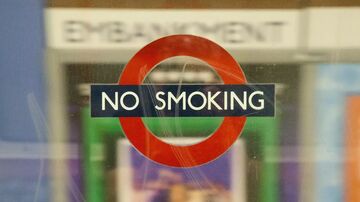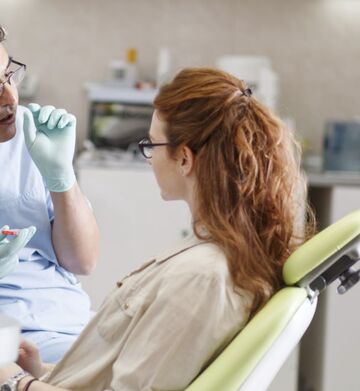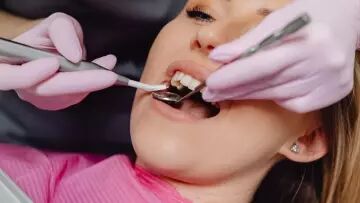
Smoking & Oral Health
When thinking about the health effects of smoking, it is normally lung cancer, emphysema and bronchitis that come to mind. However, smoking can affect all areas of your body including your oral health. Your risk of developing these diseases depends on how long you have been smoking and the number of cigarettes you smoke a day. In this blog, we look at the possible oral health conditions associated with smoking.
Oral health conditions associated with smoking
Oral/Mouth Cancer
Many people know that smoking can cause lung and throat cancer but it is also one of the leading causes of mouth cancer too. There are around 8,500 people diagnosed with mouth cancer each year and the numbers are increasing.
Smoking plays a significant role in many cases of oral cancer diagnosed each year. Whenever you inhale from a cigarette, the harmful chemicals present in the tobacco smoke first pass through your mouth and down your throat to reach your lungs. Over time these chemicals can cause changes in the tissues in your mouth, which can lead to oral cancer. Oral cancer is a preventable disease, by avoiding smoking and seeing a dentist regularly for routine appointments, you can help to keep oral cancer out of your future.
Gum Disease
Gum disease is an inflammation of the gums which left untreated can lead to pockets forming around teeth and bone loss. In the long term, this can lead to tooth loss.
Smokers are twice as likely to have gum disease than non-smokers, no matter how good their oral hygiene is. Smoking reduces the blood flow to your mouth and gums meaning you will most likely miss the most common warning sign of gum disease; bleeding gums. It is also more difficult for the gums to heal, therefore, any treatment is likely to be less effective.
Tooth Loss
Smokers are more likely to suffer from tooth loss as gum disease progresses. If you do lose a tooth there is a risk that you will suffer from a dry socket, where the nerve and bone are exposed, causing extreme pain. It is also not possible to place dental implants to replace missing teeth as the bone will not grow to secure the implants in place.
Bad Breath and Stained Teeth
The nicotine present in cigarettes will stain your teeth. You will be able to notice the yellowing of your teeth within a number of weeks and over time your teeth may become brown. The best way to remove this staining is to attend regular appointments with the hygienist. Smoking also causes a very distinct form of halitosis, the only way to prevent this is to stop smoking.
How does visiting the dentist help?
The nicotine in cigarettes is highly addictive and this means that quitting is no easy feat. Most people will need support from family and friends. Your dentist will also be able to provide you with help and advice to make this the time you quit for good.
At each check-up your dentist will perform a full mouth examination looking at the inside of your mouth and tongue, with early diagnosis and treatment the survival rates for mouth cancer are good.
Still not convinced?
Not only will you experience the health benefits of stopping smoking, but with the average person smoking 364 cigarettes a month you could save £230, that’s £2760 over the course of a year! For more information on stopping smoking please speak to the dentist on your next visit or go to https://www.nhs.uk/live-well/quit-smoking/nhs-stop-smoking-services-help-you-quit/
Contact us to make an appointment
Exclusive Offer
Airflow stain removal from our hygienist


Stress and oral health
07.04.2023

6 Tips To Get Rid Of Bad Breath
04.02.2023
Time for you perfect smile?
Book your consultation today
When visiting our practice you know you are visiting the dental professionals trained to the highest standards. You are greeted by our welcoming staff, who share the same aim, to make your visit with us as comfortable and stress free as possible.





